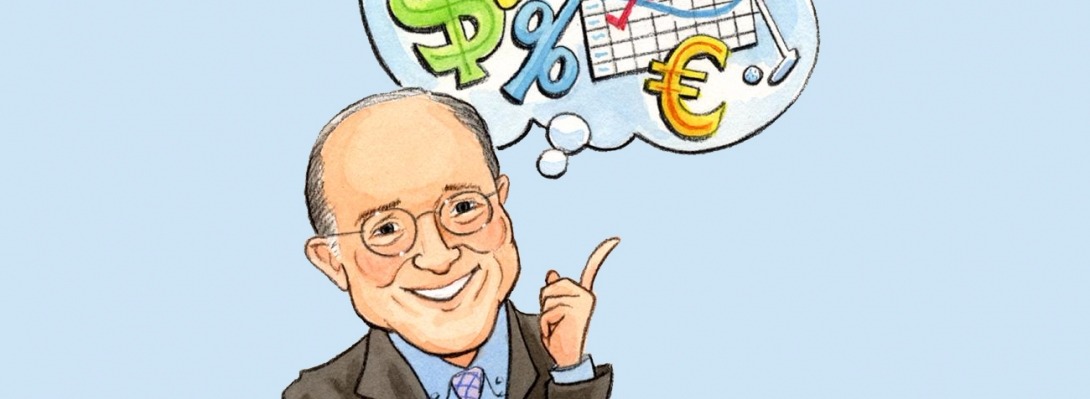|
12/31/2009
It’s a good thing that economists and journalists aren’t paid to predict the future because nobody seems to be doing a very good job of it lately. I hope you’ll remember this as all the major financial magazines come out with their yearly “Here’s what will happen in 2010” cover stories.
Reading through some back issues, we find that at this time two years ago (early 2008), nobody, anywhere, was predicting a 3rd and 4th quarter 2008 meltdown in the investment markets, or a global economy teetering on the edge of disaster. In fact, not one of the prognosticators seems to have realized that the U.S. economy had already fallen into a recession.
If you read the magazine issues in early September 2008, right before the markets suddenly went into a 400-point free-fall in two trading days (triggered by the collapse of Lehman Brothers, the AIG bailout and the federal rescue of Fannie Mae and Freddie Mac), you realized that nobody had a clue that a storm was brewing on the horizon. The Wall Street Journal talked confidently about Lehman’s efforts to secure a line of credit or divest some assets, and the consensus seemed to be that the damage from the burst housing bubble had been safely contained. Postmortem articles about the crisis showed that the Federal Reserve Chairman Ben Bernanke and Treasury Secretary Hank Paulson, who both watch the economic numbers DAILY, were caught totally flat-footed.
In January of 2009, economists and pundits were talking about the possibility of a sustained market drop similar to the slow investment torture the Japanese have experienced since 1989. Kiplinger’s magazine identified the people who had been most right in their 2008 predictions and asked them what they thought was going to happen in 2009. Not one of them predicted what actually happened: a dramatic rise in stock prices (the S&P 500 touched bottom on March 6 with an intraday price of 666.79 and rose to over 1,100 recently), and an end to the economic recession—what economists are now describing as a jobless recovery.
Here’s what they actually said. David Tice, chief equity strategist for Federated Investors, told the magazine’s readers that “The dollar will decline, and it’s very possible that inflation will pick up. The S&P 500 index could easily fall to 450 or so. This will be a longer-term decline,” he added, and gave the worst advice possible for investors over the next three quarters, saying that “Investors should be selling equities and conserving cash.”
Bob Rodriguez and Tom Atteberry, of First Pacific Advisors, confidently predicted that: “The upturn won’t come until 2010, and when it does, it will look very sluggish and lethargic.”
Economist Nouriel Roubini told Kiplinger readers: “I expect that the recession will be very severe and that it won’t be over before the end of 2009. I think there is a further 15% to 20% downside risk for global and U.S. stocks, and a further 15% to 20% downside risk for commodity prices. So 2009 will be a year of recession and deflation.”
The worst advice was being given right at the bottom in March, when global stock prices were about to reward patient investors with an amazing rally. Consider this evaluation from the March 5 issue of Business Week magazine:
All told, more than $10 trillion of stock market wealth has vanished, and with it the confidence that springs from financial security. “We are looking at a 60% to 70% chance that this bear market is not over,” says Robert D. Arnott, chairman of Research Affiliates, a Pasadena (Calif.) firm that manages $25 billion.
The article went on to predict “more debt busts and government trial and error until things get set right again. That could mean two more years of bouncing around and then another six or so before the Dow is back above 14,000.
The hardest part about investing is controlling the natural urge to sell when the market has cratered, or to buy when the market is euphoric. But that’s like going to the mall and waiting to buy until all the sales are over and prices have gone up, and then, as soon as the store has its next “25% off “ sale, going back and selling whatever you bought. Nobody would even think of doing that with their holiday gift purchases, but it’s normal behavior in the investment markets. The unhappy truth is that nobody can foresee the future, and the investment markets tend to be far less predictable than other areas of our lives. Our focus now and in the future will be on capital preservation primarily, and growth when available. We see the range of possible outcomes in the financial markets & the economy to be extremely wide. However, in concert with you, our clients, we all agree on maintaining defensive strategies in order to minimize downside risk and reduce volatility. None of us want to deal with another market like 2008. Here’s to a wonderful 2010 for you and your family. Health, happiness, and prosperity to everyone in the New Year! Sincerely,
Edward J. Kohlhepp, CFP®, ChFC, CLU
Edward J. Kohlhepp, Jr., CFP®, MBA “Life is 10% of what happens to me and 90% of how I react to it” –John Maxwell
Source: Bob Veres, Inside Information
The views expressed are not necessarily the opinion of Cambridge Investment Research and should not be construed directly or indirectly as an offer to buy or sell any securities mentioned herein. Investing is subject to risks including loss of principal invested. No strategy can assure a profit nor protect against loss. |




